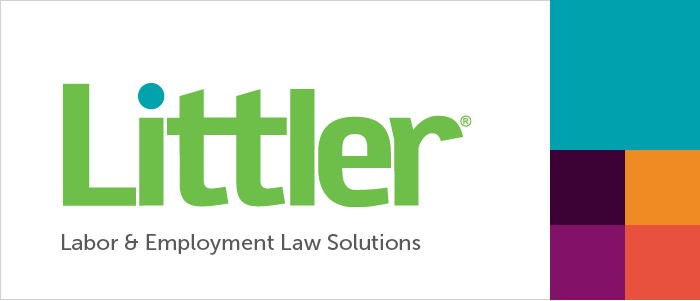
On October 2, 2015, Governor Brown signed urgency legislation (Assembly Bill [AB] 1506) that immediately amends California's Labor Code Private Attorneys General Act of 2004 (PAGA)1 to address increasing civil litigation alleging technical violations of itemized wage statements (pay stubs) issued to employees. Labor Code sections 226(a)(6) and 226(a)(8) require an employer to provide its employees with wage statements containing the inclusive dates of the pay period and the name and address of the legal entity that is the employer. AB 1506 allows an employer 33 days to cure violations of these requirements before an employee may bring an action for civil penalties under PAGA. However, these violations will not be considered "cured" until the employer can show it has provided fully-compliant wage statements to each aggrieved employee for each pay period for the three-year period prior to the date of the aggrieved employee’s letter to the Labor Workforce Development Agency (LWDA).
The Legislature's stated reason for requiring the amended statutes to take effect immediately (rather than the normal effective date of January 1 following a bill's passage) was "to incentivize prompt resolution of disputes over itemized wage statements under Part 13 (commencing with Section 2698) of Division 2 of the Labor Code arising from certain specified claims under Section 226 of the Labor Code."2
Purpose of PAGA
PAGA permits a current or former employee, or employees, to sue for civil penalties that, prior to the enactment of PAGA, could only be assessed and collected by the LDWA.3 One stated purpose of the law was to augment the limited enforcement capability of the LWDA by permitting employees to seek civil penalties for specified Labor Code violations through civil actions. Under PAGA, an employee, who stands in the shoes of the Labor Commissioner, can sue on behalf of him- or herself and other employees. As determined by subsequent case law, employees can either bring the claims in state court as a class action or as a representative action.4 Seventy-five percent of the penalties awarded are to be distributed to the state, and 25 percent to the aggrieved employees.
Purpose of the Amendment
While PAGA has generally been described as a law enforcement action designed to protect the public, the civil actions asserting PAGA claims are prosecuted by private individuals who may not consider themselves necessarily bound by the prosecutorial discretion that may otherwise temper a governmental agency's actions.
According to legislative committee and floor reports on AB 1506, the amendments were enacted in response to concerns over the potential financial windfalls and corresponding burdens on employers from "frivolous litigation regarding technical violations that do not harm or injure the employee."5 One legislative analysis points to the outcome in Elliot v. Spherion Pacific Work, LLC6 as an example of what the amendment is intended to correct. In Spherion, the company's itemized wages statements were challenged because the name was listed as "Spherion Pacific Work, LLC," rather than "Spherion Pacific Workforce, LLC." While the wage statement claim was ultimately dismissed, the committee and floor reports cite this case as an example of "unnecessary legal costs and attorney's fees" that justifies this amendment to the Act.7
The Amended Law
The amended law now provides an employer with the right to cure an alleged violation of failing to provide on a pay stub the inclusive dates of the pay period (Labor Code section 226(a)(6)) and the name and address of the legal employer (Labor Code section 226(a)(8)) before an employee may bring a civil action seeking PAGA penalties. To receive the protection of the cure provisions, the employer must provide to each affected employee a "fully compliant, itemized wage statement . . . for each pay period for the three-year period prior to the date of the written notice" required by Labor Code section 2699.3(a)(1).8 The amended statutes limit the employer's right to cure these violations to once in a 12-month period.9 Employers should also keep in mind that AB 1506 pertains only to the cure provisions in PAGA; it does not address an employee’s ability to seek statutory penalties under Labor Code section 226(e) for violations of section 226(a)(6) and (8).
While employers undoubtedly would like to see additional reforms and changes to PAGA, these amendments are a small step in the right direction.
Next Steps
Employers charged with violations of Labor Code section 226(a)(6) or (8) should consult with counsel to determine whether it is possible and advisable to initiate a cure process in an attempt to bar further prosecution of such claims under the terms of the amended PAGA statutes. Likewise, employers may want to consider training personnel who first receive copies of notices alleging noncompliance with Labor Code requirements sent to the LWDA to immediately bring to management's attention whether violations of Labor Code section 226(a)(6) or (8) are alleged in those notices.
Footnotes
1 Labor Code sections 2698-2699.5.
2 AB 1506, sec. 4. For the text of the final and previous versions of the bill, committee and floor votes and reports, and other associated information, see http://leginfo.legislature.ca.gov/faces/billCompareClient.xhtml?bill_id=201520160AB1506.
3 See Arias v. Superior Court (Angelo Dairy), 46 Cal. 4th 969, 986 (2009).
4 Id.
5 See Iskanian v. CLS Transp. Los Angeles, LLC, 59 Cal.4th 348, 383 (2014).
6 572 F.Supp.2d 1169 (2008).
7 Senate Floor Analysis of 2015 CA A.B. 1506 at p. 5 (Sept. 1, 2015); see Assembly Floor Analysis of 2015 CA A.B. 1506 at p. 3 (Sept. 8, 2015).
8 Labor Code section 2699(d).
9 Labor Code section 2699.3(c)(2)(B)(ii).